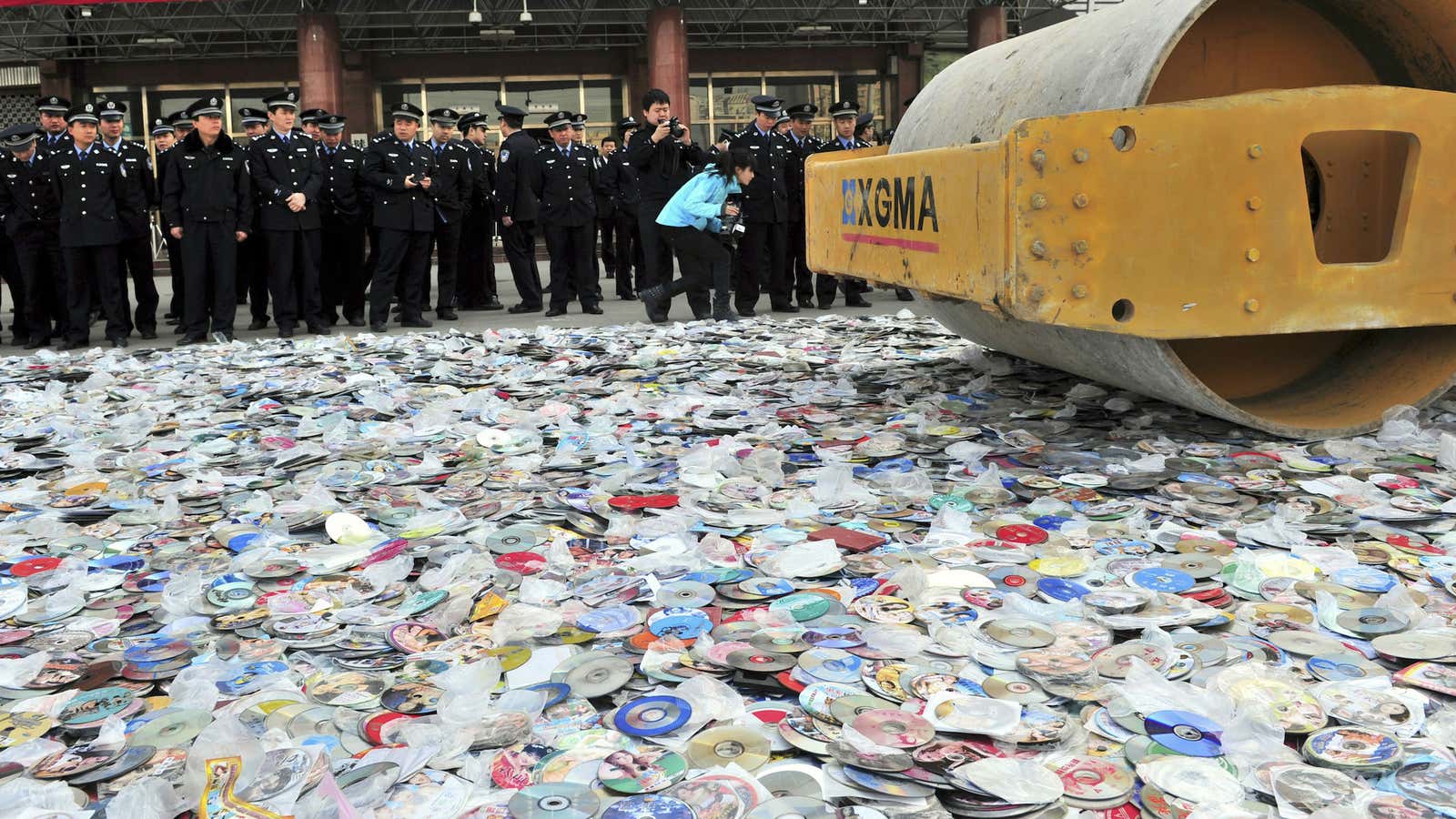China’s National Office Against Pornographic and Illegal Publications just announced another big campaign against pornography. The “Cleaning the web” initiative is to last until November and target websites, search portals, mobile app stores, and set-top boxes that provide access to porn. But the measures are likely not as serious as officials would like the public to think.
Pornography has been banned in the People’s Republic since its founding in 1949. Since the late 1990s, the Chinese government has been launching periodic measures to root out its spread. Thousands of websites have been shut down and thousands of people arrested. Officials say illicit sexual material has “perverted China’s young minds” and harms the country’s “social ethos.”
Yet, it’s estimated that China accounts for up to 28% of the world’s porn consumption, the most of any country (though that’s also a function of the size of the country’s population of internet users, about 600 million.) As we’ve reported, Chinese, as well as South Koreans and Japanese, watch the most porn in East Asia. Hawkers of pirated DVDs almost always have a stash of these ”yellow movies.” Greatfire.org, which tracks Chinese censorship, has found that some of China’s fastest-loading foreign websites are in fact porn sites. In most Chinese cities, sex shops and brothels thinly disguised as massage parlors dot busy streets and neighborhoods.
The contrast between China’s seemingly draconian attitude toward porn and its prevalence in Chinese society leads some to believe the initiatives are more about politics than morality. “Historically in China … the technology used to censor porn has ended up being used more vigorously to censor political content than smut,” Rebecca MacKinnon, an expert on China’s internet, wrote about a previous campaign in 2009. That year, several outspoken blogging portals were shut down for posting “politically harmful information.”
Others believe the anti-porn moves are more aimed at sexual minority groups than mainstream porn. In the past. the government has shut down sites offering advice or information to gays, lesbians, bisexuals, or transgender people in China as well as sites containing erotic gay fiction. Less ominous is the possibility that Chinese officials simply launch these campaigns with little intention of stamping out the industry. Instead, it provides an occasion for the government to flex its muscles over China’s internet firms and require them to fall in line.
Even still, the Chinese public shows little concern. Katrien Jacobs, author of the book, People’s Pornography: Sex and Surveillance on the Chinese Internet, said in 2011 about her research: ”We also have to keep in mind that the official government bulletins are not taken seriously by Chinese people. I read quite a few of them while researching my book and when asking my informants if the believed in government statistics intimidations, they would often smile and say: ‘No. Of course not!'”
